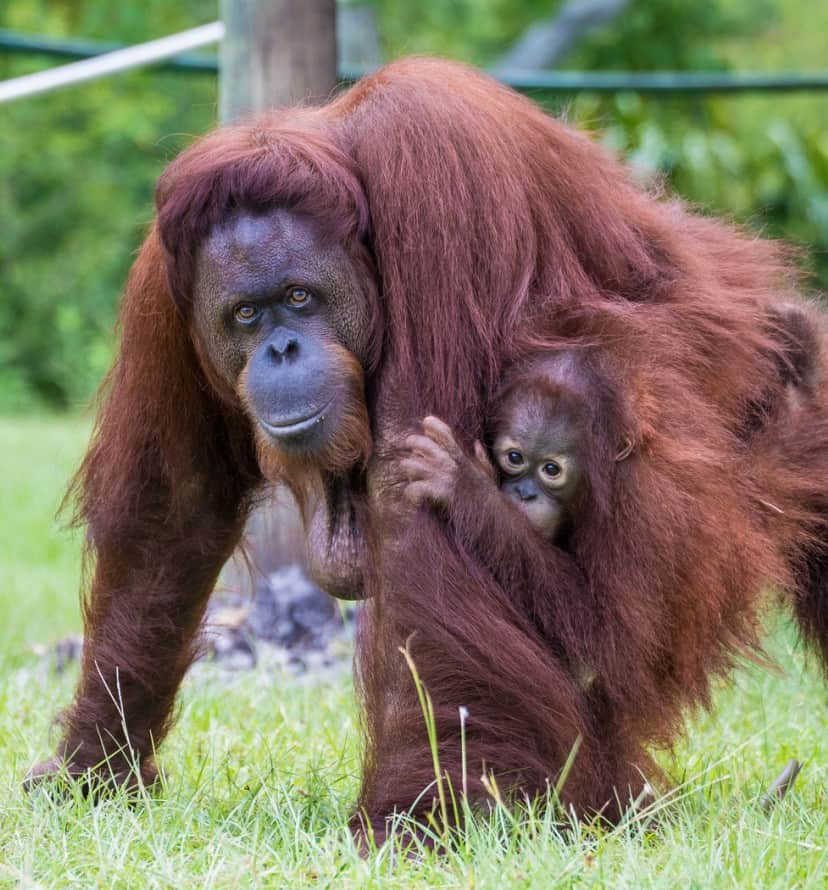Discover the Wonders of the Animal Kingdom: A Family Adventure
Welcome, parents and future wildlife enthusiasts! Are you ready to embark on a journey through the awe-inspiring world of zoo animals with your children? Zoos offer a fantastic opportunity to educate young minds about animal diversity, habitats, and conservation efforts. This guide is designed to help you turn a family day out at the zoo into an unforgettable educational experience!
Before the Zoo: Preparing Your Little Explorers
Every successful expedition requires some preparation. Here’s how you can lay the groundwork to maximize your zoo adventure:
- Educational Fun: Start with age-appropriate books or documentaries about animals to spark curiosity. Knowing a few fun facts can turn a simple zoo visit into a quest for knowledge!
- Engaging Games: Create a bingo game with pictures of animals you’re likely to see, adding an element of play to your visit and keeping children engaged.
- Scavenger Hunt: Develop a scavenger hunt list that encourages kids to observe animal behaviors or spot unique characteristics. It’s a great way to ensure they’re looking and learning.
At the Zoo: A Safari of Learning
With the excitement buzzing, it’s time to dive into the zoo experience. Keep these tips in mind to facilitate learning and discovery:
- Animal Observations: Encourage children to take note of what the animals are doing. Ask questions like “Why do you think the monkey is swinging from those ropes?” to encourage critical thinking.
- Conservation Conversations: Many zoos have exhibits and signs explaining conservation efforts. Use these as starting points to discuss the importance of protecting wildlife.
- Interactive Exhibits: Take advantage of interactive stations where kids can feel pelts or compare their hands to animal prints. These hands-on experiences can be incredibly impactful.
Animal Spotlights: Learning About Popular Zoo Residents
Let’s take a closer look at some of the beloved animals your family might meet on your zoo visit:
The Majestic Elephants
Elephants are gentle giants known for their incredible memory and social structures. They can be found in both African and Asian exhibits. Discuss the differences with your children, like the ear size and the shape of their back. Conservation topics like ivory poaching and habitat loss can be broached here in a child-friendly manner.
The Roaring Lions
Lions are always a hit with the kids! These big cats are known as the kings of the jungle, which can lead to discussions about predator-prey relationships and the savanna ecosystem. Also, talking about their pride dynamics is a great way to touch on social behavior in animals.
Engaging with your children about these animals and many others at the zoo can stimulate curiosity and foster a lifelong love for nature. Stay tuned as we continue to delve deeper into this topic in the next section of our comprehensive guide!

Five Essential Tips for Parents Preparing for a Zoo Adventure
Ready to set off on your zoo escapade? Here are five essential tips to ensure that you and your children have the best experience possible while learning about the magnificent creatures of our planet:
1. Plan Your Visit
Most zoos are quite extensive and it can be challenging to see everything in one day, especially with young ones. Prioritize exhibits based on your children’s interests or the educational themes you want to explore. Check the zoo’s map online and plan your route. Look for feeding times or special events that can be enlightening for the whole family. Remember, a well-structured plan can lead to a more relaxed and fulfilling visit!
2. Dress Appropriately
Ensure everyone is dressed for a day of adventure. Comfortable walking shoes are a must as you’ll be on your feet for the majority of the day. Dress in layers to adjust to changing temperatures and don’t forget hats and sunscreen to protect against sun exposure. Lastly, bring rain gear just in case the weather changes so that a little rain doesn’t dampen your zoological quest!
3. Pack Wisely
Bring a backpack with essentials like water bottles to stay hydrated, healthy snacks to keep energy levels up, and any necessary medication. Don’t forget a camera or smartphone to capture those special moments. Include a notebook and pencils so your kids can jot down interesting observations or draw their favorite animals, enhancing their learning experience.
4. Teach Respect and Safety
Before arrival, talk to your children about the importance of respecting the animals’ space and the rules of the zoo. Explain that loud noises and sudden movements can startle the animals. Remind them to stay close to you at all times and not to climb on fences or barriers, as these are in place for everyone’s safety.
5. Be Patient and Flexible
Children’s moods and interests can change quickly, so be prepared to adjust your plan as needed. If your child is particularly captivated by the flamingos, take the time to let them observe and learn instead of rushing to the next exhibit. The goal is to create a positive and stress-free experience which sometimes means going with the flow.
As you navigate the zoo’s pathways and encounter different creatures, you can ignite your children’s thirst for knowledge and foster a lasting reverence for our natural world. Each visit can be a new adventure, an opportunity to discover something previously unnoticed, and an opening to introduce deeper ecological concepts in an age-appropriate way. So grab your zoo map, fasten your fanny pack, and get ready to inspire the next generation of animal lovers and conservationists!
For more great fun click here. For more information see here
Disclaimer
The articles available via our website provide general information only and we strongly urge readers to exercise caution and conduct their own thorough research and fact-checking. The information presented should not be taken as absolute truth, and, to the maximum extent permitted by law, we will not be held liable for any inaccuracies or errors in the content. It is essential for individuals to independently verify and validate the information before making any decisions or taking any actions based on the articles.




